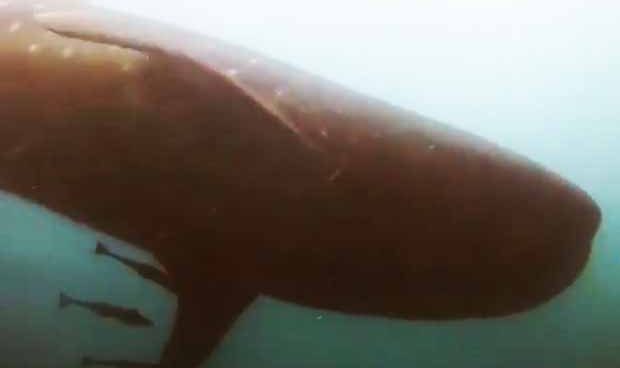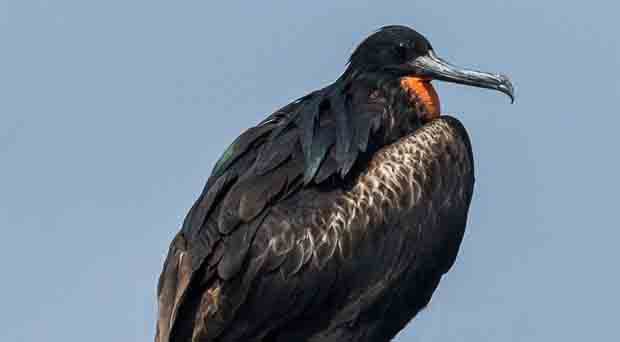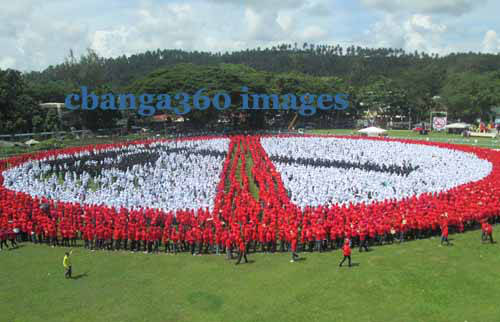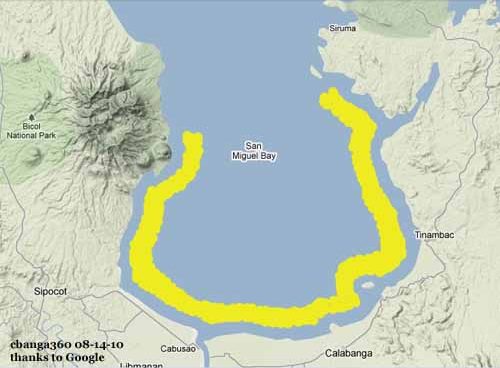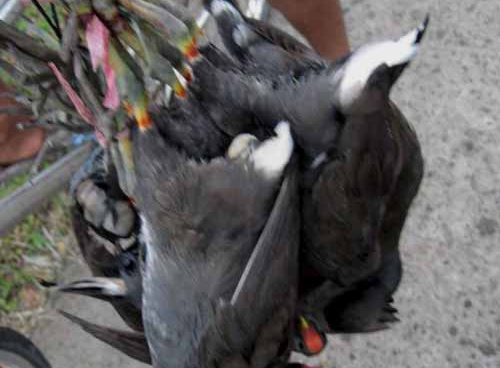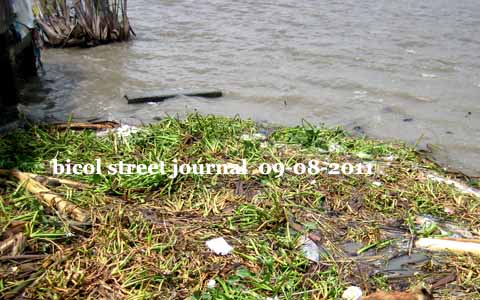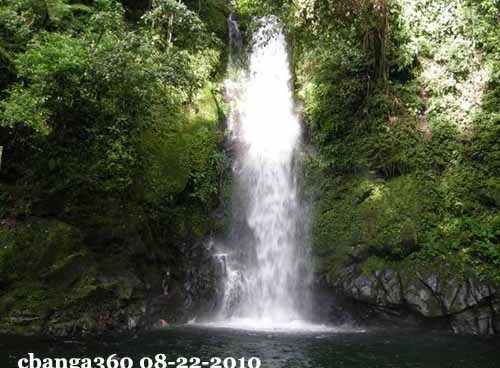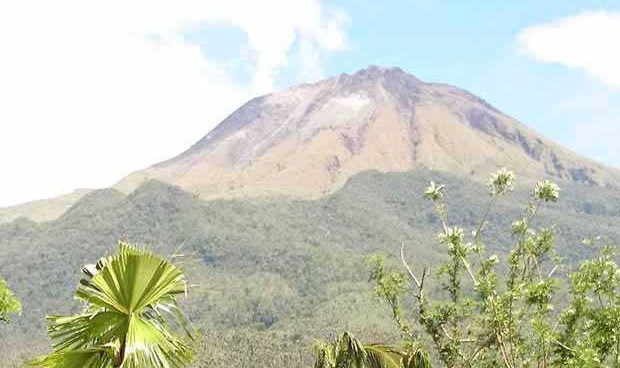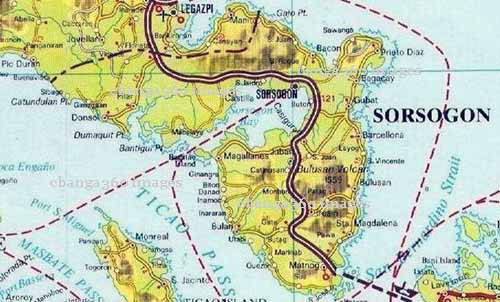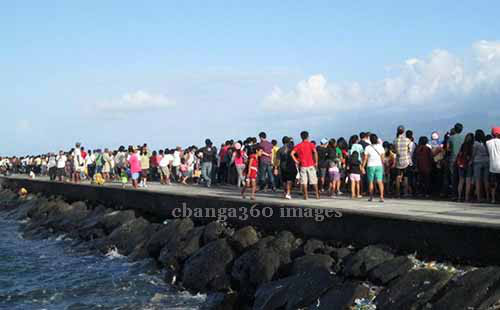
Not Butanding, but Dolphins frolic in Albay waters now. A pod of dolphins has been appearing and frolicking before the public off the coastlines of the city of Legazpi and the adjoining town of Sto. Domingo since last week.
With these new exciting development, the mayors of Legazpi and Sto. Domingo on Monday issued separate warnings against seaborne activities that may harm the dolphins that now frolic at the local waters.
“I don’t’ want a repeat of what happened to the butanding (whale sharks). I warn everyone from engaging in any activity that could be harmful to the dolphins,” Mayor Noel Rosal said.
In referring to butanding, he recalled that last January, a pod of these “gentle marine giants” also flocked the waters of the city to the amazement of thousands of onlookers, including foreign and domestic tourists who were seeking interactions with it.
These migratory animals were expected to stay for three to four months to feast on plankton that are seasonally abundant in the clean sea waters of the city.
Amid that phenomenon, Rosal issued whale shark interaction guidelines that carry with it a “Code of Conduct” in dealing with the enormous sea mammals the coming to the city waters has become an added attraction, drawing hundreds of tourists who come to go seaborne for underwater interactions.
“Now come the dolphins and I would to insist that these animals should be left alone freely frolicking at our waters without being harmed by any untoward activity,” Rosal stressed.
Sto. Domingo Mayor Herbie Aguas has also issued a similarly stern warning as he set up over the weekend a dolphin interaction center that now sees to it that good conduct is observed by anybody, including tourists, as they go seaborne watching.
Early last week, a dolphin believed to be part of the pod was found dead with spear wounds along the shoreline of the municipality.
The local police and personnel of the Department of Environment and Natural Resources (DENR) have been conducting an investigation on the matter and Aguas said “anybody who would be found responsible would be prosecuted under the law on the protection of endangered wildlife species.”
Aguas said various fishing methods like purse seine, drift and gill nets that could unintentionally kill dolphins are also prohibited from the local coastal waters where they are have been seen frolicking.
It must be recalled that the Rosal-initiated whale shark interaction guidelines carry with it a “Code of Conduct.” Stressed in the guidelines that “to ensure safety and enjoyable experience and to prevent the animals from being disturbed, the Code of Conduct must be observed.”
“First, do not touch or ride the whale shark nor restrict its movement or impede its natural path. The recommended distance from the animals that divers should maintain is three meters from its tail,” the city mayor said.
While whale sharks are passive creatures, they can be agitated by any form of aggression such as being touched or chased; that is why in the Code, these behaviors are strictly forbidden, he explained.
Other acts that are forbidden during interactions, Rosal said, are the use of flash in taking underwater photographs and the use of scuba, scooters, jet ski or any motorized underwater propulsion so as not to cause even minimal disturbance to the sharks when approaching it by boat or when diving.
But at the height of the sightings of the sea mammals, practice simulation exercises (SIMEX), spearheaded by the Office of Civil Defense (OCD) for Bicol under its regional director Bernardo Rafaelito Bernardo, were conducted right at the shores of Legazpi Boulevard where the butandings had been showing up.
In these activities, gunshots were fired and loud explosions were heard as part of the exercises while helicopters were flown almost the sea level and large Philippine Coast Guard and Philippine Navy boats also crowded the venue.
Observers said the activities, which were deemed to have violated Administrative Order 282 issued by the President of the Philippines in 2010 that provides for the intensification of the protection of the whale shark (Rhicodon typus) in the Philippine waters to conserve the species and sustain the ecotourism development in certain coastal communities, agitated the whale sharks into leaving the city waters prematurely to the dismay of watchers, including Rosal and the tourists.{with PNA report by Danny O. Calleja)
- Road Tour Calabanga:San Pablo to Amang Hinulid - August 31, 2022
- Miss U Catriona Gray Rumampa ng Suporta sa Tropa - May 9, 2022
- Dalawang Shoutout SOX People’s Rally for Leni - April 4, 2022
































